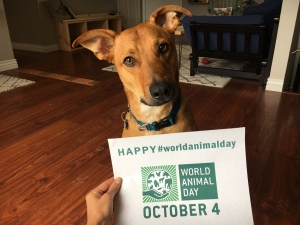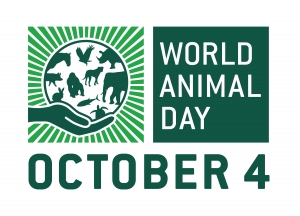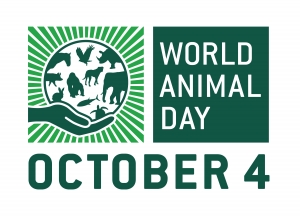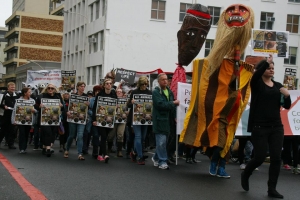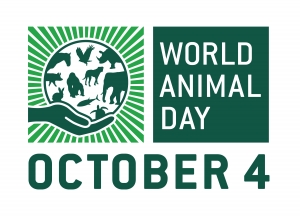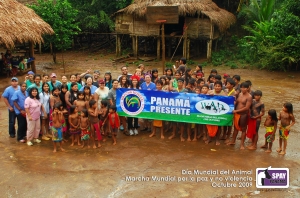Displaying items by tag: World Animal Day
World Animal Net Volunteers, Staff, Board and Animal Companions Celebrate World Animal Day!
At World Animal Net we are proud supporters of World Animal Day, a holiday that recognizes animals of all kinds and challenges us to do our best to improve their lives. This year, WAN volunteers, staff and board have gotten in the spirit and joined the “Global Wave,” a social media campaign by World Animal Day organizers asking participants to take a selfie and share on social media in order to spread the word about World Animal Day.
We would like to also take this opportunity to thank all those who support our work, particularly our volunteers, and to encourage others to join the World Animal Day celebration.
Tell Google to Celebrate World Animal Day by Creating a Google “Doodle”!
World Animal Day 2016: Let's Celebrate Animals Every Day
World Animal Day Makes Animal Issues Front Page News Around the Globe!
A few months ago, Caroline Ruane, Campaign Manager for the World Animal Day initiative, wrote to tell us a bit about the background and meaning behind World Animal Day (celebrated October 4 each year). Now that World Animal Day 2015 has come to a close, Caroline has given us an update about how World Animal Day was celebrated and continues to grow around the world, thanks in no small part to World Animal Day’s 89 Ambassadors in 76 countries.
Four Reasons Your Organization Should Join the World Animal Day Movement
World Animal Day is now upon us! Every October 4, advocates from around the world gather together in support of World Animal Day. Recently, Caroline Ruane of the official World Animal Day headquarters was kind enough to share with us how World Animal Day began, and what it has accomplished around the world. You can read more about this incredible work here and on the World Animal Day website, but for those who are hesitant about why their organization should celebrate World Animal Day, here are four reasons why World Animal Day benefits not only animals and the global animal protection movement, but how your organization can benefit as well:
World Animal Day – 4 October – Help make a difference for animals
For many people who care about animals, World Animal Day, 4 October, is already a very important day each year. For those people who haven’t yet participated, I’d like to tell you more about what this global movement can achieve for animals and encourage you to get involved.
Animal Protection: The Next Great Social Change Movement?
One question that is often asked in international animal protection circles is: “Why is our movement taking so long to become a real force for social change?”
This is particularly striking when you compare ours with the modern environmental movement – a ‘newcomer on the block’, with its beginnings in the 1960s, but which has already gathered critical mass.

